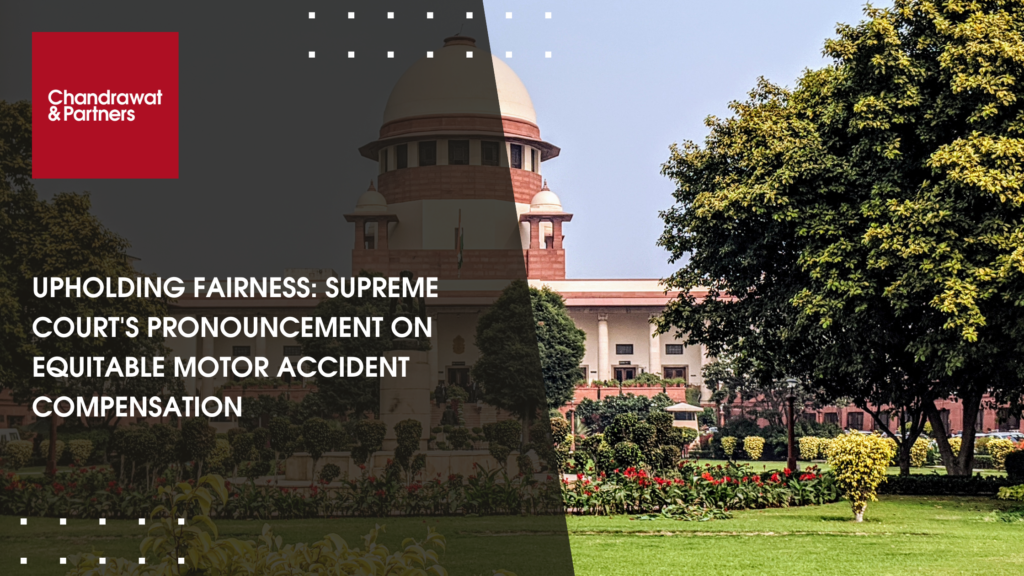Share :
Introduction
The recent order by the Supreme Court of India regarding motor accident compensation, particularly in the case of Ravisankar, sheds light on the complicated process of calculating compensation in cases involving multiple sources of income. This landmark judgement underscores the court’s commitment to ensuring fair and just outcomes for victims and their families in the aftermath of tragic accidents.
BACKGROUND OF THE CASE
In VETHAMBAL AND OTHERS v. THE ORIENTAL INSURANCE COMPANY AND OTHERS, Ravisankar, a 52-year-old individual, met with a fatal road accident while riding a motorcycle in Tirunelveli. His untimely demise left behind a family comprising his elderly mother, wife, daughter, and son, all of whom were dependent on him as the sole breadwinner. Ravisankar was not only engaged in agriculture but also ran a dairy farm and worked as a government contractor, showcasing his diverse economic contributions.
Initial Compensation and Legal Proceedings
Following the accident, Ravisankar’s family filed a compensation claim amounting to Rs. one crore, reflecting the significant loss incurred due to his multifaceted livelihood. The Motor Accident Claims Tribunal initially awarded over Rs. 51.64 lakh with 8% interest per annum. However, upon appeal by the Insurance Company, the High Court reduced the compensation to Rs. 22.48 lakh, disputing the initial assessment of the deceased’s income.
SUPREME COURT’S RULING
The Supreme Court, presided over by Justices C.T. Ravikumar and Rajesh Bindal, delivered a particular judgment acknowledging the complexity of assessing compensation in cases involving varied sources of income. Mentioning established legal principles, including the Motor Vehicles Act, 1988, the court emphasized the need for a fair and reasonable assessment rather than rigid mathematical precision. Considering the evidence presented, including the deceased’s diverse economic activities and the impact of his death on the family’s income, the court reviewed the compensation at Rs. 38.51 lakh with 8% interest per annum.
Key Legal Principles and Analysis
The court’s ruling highlights several key legal principles that govern the assessment of motor accident compensation. Firstly, it underscores the importance of considering the deceased’s contributions to various economic sectors and the significant impact of his death on the family’s financial well-being. Secondly, the judgment confirms the principle that compensation should not be solely based on a narrow interpretation of income but should consider the broader socio-economic context.
Implications for Future Cases
The ruling has significant implications for future motor accident cases, setting a precedent for a comprehensive assessment of compensation. By recognizing the diverse economic activities of the deceased and the significant impact on the family’s livelihood, the court has underscored its commitment to justice and equity in such cases. The decision serves as a guiding principle for courts in ensuring that victims and their families receive adequate support to manage with the financial impacts of accidents.
Conclusion
The Supreme Court’s decision to enhance motor accident compensation in the case of Ravisankar represents a landmark judgment in the realm of personal injury law. By adopting a holistic approach to compensation assessment and considering the broader socio-economic context, the court has demonstrated its commitment to upholding principles of fairness and justice. The ruling serves as a beacon for future cases, emphasizing the need for a nuanced understanding of the complexities involved in assessing compensation for motor accident victims and their families.
For more information or queries, please email us at
enquiries@chandrawatpartners.com




